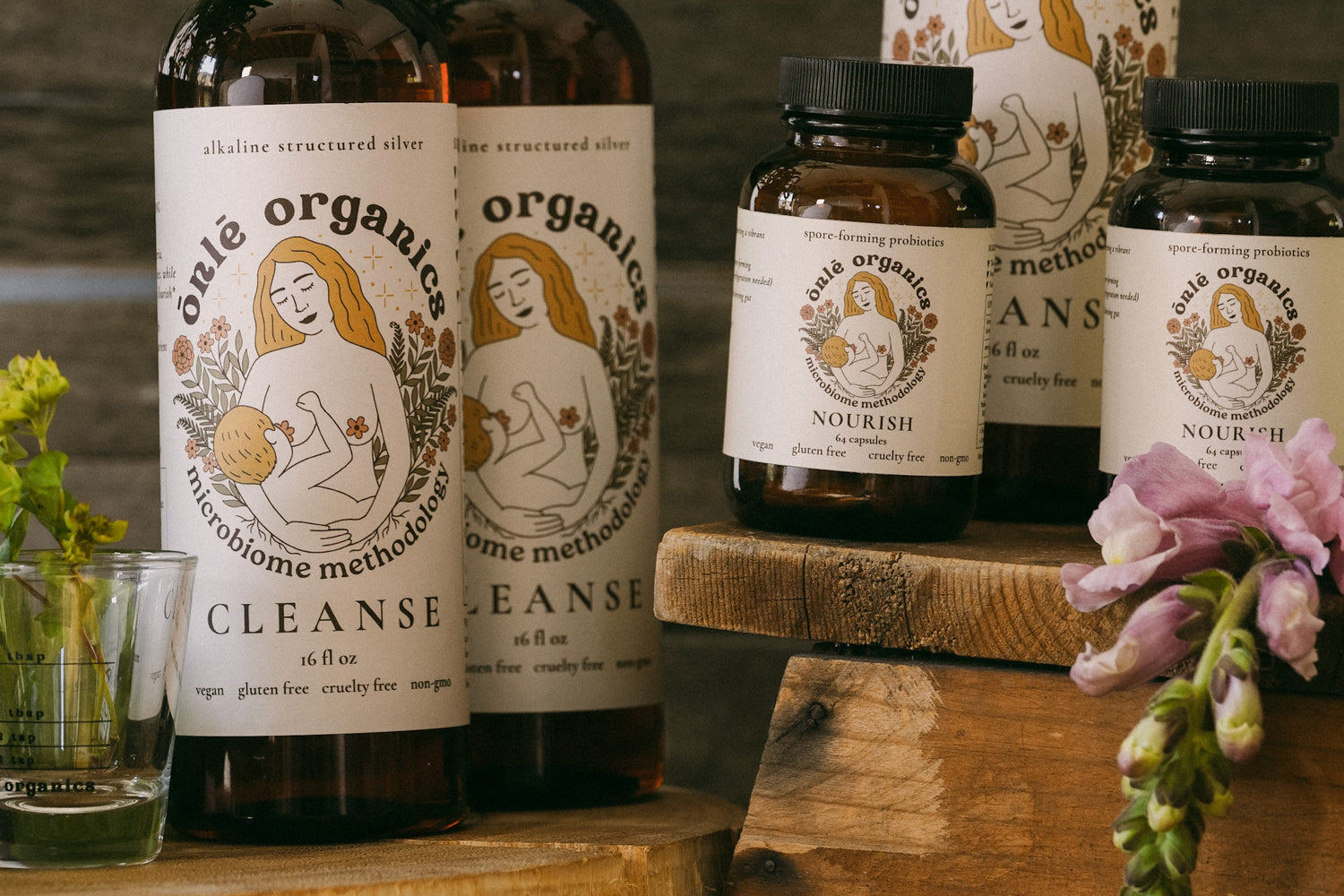

Links from episode . . .
Subscribe to Follow Your Gut with Juniper Bennett wherever you listen to podcasts
Transcript:
Recurring infections like UTIs, vaginal yeast infections, mastitis, and ear infections are more than just frustrating and painful - they are signals that something deeper is going on in the body. They show up, go away for a while, and then come back with even more intensity. If you’ve dealt with this cycle, you know it can feel relentless, and the questions loom: why do they keep coming back? What is happening inside the body that makes us so prone to this cycle of infection, treatment, and recurrence? The answer is in your gut.
Today we are talking all about why your gut health is so important in fighting and keeping infections away.
An infection occurs when harmful pathogens - whether bacteria, yeast, or other microorganisms - find their way into the body and start multiplying. Now, a healthy body is well-equipped to fend off these invaders thanks to the immune system. But the strength of our immune response is intimately tied to our gut health. Out gut is home to 70-80% of our immune cells. That’s a massive share of our immune system!
When the gut is balanced, properly populated with beneficial bacteria, and functioning smoothly, it forms a strong line of defense. But when this balance is disrupted - whether due to an overgrowth of harmful bacteria, yeast, mold, fungus, or even parasites - the body becomes more vulnerable to infections. With too few beneficial bacteria and an overgrowth of bad, the gut becomes a breeding ground for pathogens that can trigger infections throughout the body.
So, why does a gut imbalance lead to recurring infections? It often starts with factors that weaken our gut microbiome over time. High stress, for example, triggers the release of cortisol, a hormone that can disrupt the gut lining and diminish the beneficial bacteria we rely on for defense. Medications, including laxatives, birth control or antibiotics taken to fight a previous infection, can further strip away beneficial bacteria, leaving gaps for harmful pathogens to thrive. Unavoidable exposure to toxins, chemicals and heavy metals. And of course dietary choices like high sugar intake, processed foods, and alcohol can feed the harmful bacteria and yeasts, contributing to imbalance.
Once the gut is disrupted, our immune response weakens, and inflammation increases. Chronic, low-grade inflammation might not feel obvious daily, but it builds up over time, wearing down our body’s defenses. Infections, by nature, trigger inflammation as the body tries to fight them off. But if we’re already inflamed due to an unknown gut imbalance, we’re essentially stacking inflammation on top of inflammation. This creates an environment where pathogens can easily take hold, turning our bodies into prime environments for recurring infections.
I want you to visualize this scenario: if your gut is imbalanced but you don’t even know it and then you get a UTI, for example, the traditional treatment is antibiotics. While antibiotics can be effective in killing the bacteria causing the infection, they also kill the beneficial gut bacteria. This creates a vicious cycle where each infection and its treatment further weakens the gut, making you even more prone to the next infection. In this sense, antibiotics act almost like a band-aid that keeps a wound too moist to heal. They may temporarily stop the immediate infection, but they don’t address the root imbalance that sets the stage for recurrence and in fact they exacerbate the deeper issue.
Let’s break down some of the infections commonly linked to gut imbalances:
- Urinary Tract Infections (UTIs) - When the gut is out of balance, pathogenic bacteria can overpopulate and spread, eventually finding their way to the urinary tract. With a weakened immune response, these bacteria can easily take hold, leading to painful and recurrent UTIs.
- Vaginal Yeast Infections - The delicate balance of bacteria and yeast in the vaginal microbiome relies on a healthy gut. When gut bacteria become depleted, yeast strains like Candida can grow out of control, leading to yeast infections.
- Mastitis - For breastfeeding mamas, mastitis is a bacterial infection of the breast tissue, often stemming from a weakened immune system. An imbalanced gut microbiome reduces our ability to fight off bacteria triggering inflammation and infection in the breast.
- Ear Infections - This is particularly common in children. When gut health is compromised, systematic inflammation increases, and the immune system’s ability to fight off infections in the ear canals is reduced. This can lead to repeated ear infections.
These are just a few examples, but this pattern of recurring infections can also include sinus infections, strep throat, bronchitis, and even skin infections like boils and acne. The cycle continues, leading to inflammation and eventually a weakened system that becomes more and more vulnerable to infections.
To break this cycle, it is important to heal the body from the gut outward. This is exactly what the Women’s and Children’s Gut Rebalance Kits are designed to do. Rather than temporarily managing symptoms or simply killing off the current pathogen, these kits target the root of the problem by restoring balance to the gut microbiome itself.
The rebalancing process works by selectively killing harmful bacteria, yeast, and other pathogens while allowing the beneficial bacteria to thrive. This creates an environment where the immune system can naturally fight off infections. Rather than the body constantly inflaming and fighting, it shifts to a calm, resilient state.
Antibiotics can be life-saving when absolutely necessary. But, when used unnecessarily or repeatedly, they are really harmful. Think of your body as a garden: beneficial bacteria are like the healthy plants and flowers, while harmful bacteria are the weeds. Antibiotics act like a powerful weed killer, wiping out not only the weeds but also the healthy plants. When the weeds start growing back, they often do so faster and stronger, having adapted to the treatment, while the healthy plants struggle to reestablish themselves in the now-compromised soil.
This is why rebalancing the gut is so powerful. It’s about cultivating and nurturing the beneficial bacteria so that they can naturally keep the pathogens - the weeds - in check. Once this balance is restored, the cycle of recurring infections is broken.
Rebalancing isn’t a quick fix; it’s a gradual, foundational approach. It takes time to build up the beneficial bacteria that will protect you in the long run. But it’s a sustainable solution, unlike the temporary relief offered by antibiotics.
When you rebalance your gut, you're supporting your body’s natural defenses. You're creating an environment where infections struggle to survive and where inflammation doesn’t exist. By nurturing your gut, you’re giving your body the tools it needs to naturally fend off infections, reducing the likelihood of recurrence. And ultimately, this isn’t just about avoiding antibiotics or reducing infections; it’s about creating lasting resilience and wellness from within your body.
The recurrence of infections isn’t random, and it’s not something we just have to "live with." It’s a message from the body that something deeper needs attention. Rather than masking symptoms or temporarily eliminating pathogens, addressing your gut health gets to the true root of the issue. With rebalancing, you’re not just treating the current infection; you’re building a foundation of health that will guard against future infections and support a strong, resilient body.
So, if you or your child have been stuck in this cycle, know that there is another way. By investing in your gut health, you’re breaking this cycle and healing the body from the ground up.

